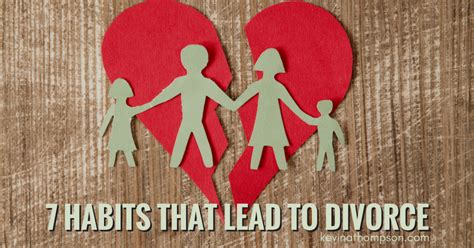
Adults who perceive themselves as the “loser sibling” may exhibit specific character traits linked to their childhood roles within the family, according to recent insights from therapists and relationship experts. These ingrained dynamics can significantly influence their adult relationships, career choices, and overall self-perception, leading to feelings of inadequacy or being perpetually overshadowed.
Childhood family dynamics often create specific roles for each sibling, which can persist into adulthood, shaping personalities and behaviors. Experts suggest that individuals labeled as the “loser sibling” frequently grapple with feelings of low self-worth, stemming from consistent comparisons to their more “successful” siblings. This perceived lack of achievement can manifest in various aspects of their lives, from professional endeavors to romantic relationships.
“The ‘loser’ sibling is, in my experience, the one who feels like they can’t get anything right,” explains Dr. Perpetua Neo, a therapist specializing in dysfunctional family patterns. This perception, often fostered during childhood, can create a self-fulfilling prophecy, where individuals unconsciously sabotage their own efforts due to an ingrained belief in their inadequacy. The constant comparison and perceived judgment from family members exacerbate these feelings, leading to chronic self-doubt and anxiety.
One common characteristic of the “loser sibling” is a tendency to seek external validation. Because they often feel inadequate internally, they may constantly seek approval and recognition from others to bolster their self-esteem. This dependence on external validation can make them vulnerable to manipulation and exploitation in relationships, as they may prioritize the needs and opinions of others over their own. Furthermore, the fear of disappointing others can lead to chronic stress and anxiety, hindering their ability to pursue their own goals and aspirations.
Another significant impact of this childhood dynamic is difficulty in establishing healthy boundaries. Individuals who grew up feeling undervalued may struggle to assert their needs and limits in adult relationships. They may fear conflict or rejection, leading them to tolerate disrespectful or abusive behavior from others. This lack of boundaries can further reinforce their feelings of inadequacy and powerlessness, perpetuating the cycle of being the “loser sibling.”
Moreover, the “loser sibling” may exhibit a pattern of self-sabotage. This can manifest as procrastination, avoidance of challenging situations, or making choices that undermine their own success. This behavior is often driven by a subconscious belief that they are not worthy of success or happiness. By sabotaging their own efforts, they can confirm their negative self-perception and avoid the potential disappointment of failure. This pattern can be particularly damaging to their career prospects and personal relationships.
The effects of being labeled the “loser sibling” are not limited to individual well-being; they can also impact family relationships. Resentment and animosity can build between siblings, particularly if the “successful” sibling is perceived as arrogant or condescending. The “loser sibling” may feel envious and resentful of their sibling’s achievements, while the “successful” sibling may feel burdened by the pressure to maintain their image of perfection. These dynamics can create a toxic family environment, characterized by constant competition and conflict.
However, experts emphasize that these ingrained patterns can be broken. Therapy, particularly family systems therapy, can help individuals understand the roots of their feelings of inadequacy and develop healthier coping mechanisms. By exploring their childhood experiences and identifying the specific dynamics that contributed to their “loser sibling” identity, individuals can begin to challenge their negative self-perceptions and build a stronger sense of self-worth.
Furthermore, learning to establish healthy boundaries is crucial for breaking free from this pattern. This involves identifying their own needs and limits, and communicating them assertively to others. It also requires learning to say “no” without feeling guilty or selfish. By setting boundaries, individuals can protect themselves from being taken advantage of and begin to prioritize their own well-being.
In addition to therapy and boundary-setting, self-compassion is essential for healing from the “loser sibling” label. This involves treating oneself with kindness and understanding, particularly in the face of failure or setbacks. It also involves recognizing that everyone makes mistakes and that imperfections are a normal part of the human experience. By practicing self-compassion, individuals can challenge their inner critic and cultivate a more positive and accepting self-image.
Ultimately, overcoming the effects of being labeled the “loser sibling” requires a conscious effort to challenge ingrained patterns and develop healthier ways of relating to oneself and others. While the process may be challenging, it is possible to break free from the limitations of childhood roles and create a more fulfilling and authentic life.
The article also mentions the prevalence of sibling rivalry and its potential long-term effects. While sibling rivalry is a normal part of childhood development, the intensity and nature of the rivalry can have a significant impact on each sibling’s self-esteem and sense of identity. When one sibling is consistently favored or perceived as more successful, the other sibling may develop feelings of inadequacy and resentment. This can lead to a lifelong pattern of competition and conflict, hindering their ability to form healthy relationships with each other and with others outside the family.
Moreover, the article highlights the importance of parental awareness in mitigating the negative effects of sibling rivalry. Parents who are aware of the potential for harmful comparisons can take steps to promote a more equitable and supportive family environment. This may involve providing each child with individual attention and recognition, celebrating their unique strengths and talents, and avoiding making direct comparisons between them. By fostering a sense of equality and appreciation within the family, parents can help to prevent the development of the “loser sibling” dynamic and promote healthy sibling relationships.
The concept of “scapegoating” within families is also relevant to this discussion. In dysfunctional families, one child may be designated as the “scapegoat,” who is blamed for all the family’s problems. This child often becomes the target of criticism and negativity, leading to feelings of shame and self-blame. The “loser sibling” may be the scapegoat in the family, bearing the brunt of parental frustration and sibling rivalry. This can have a devastating impact on their self-esteem and mental health, making it difficult for them to thrive in adulthood.
Conversely, the “golden child” in the family may be placed on a pedestal and showered with praise and attention. While this may seem like a positive thing, it can also create unrealistic expectations and pressure for the golden child to maintain their image of perfection. The “loser sibling” may feel even more inadequate in comparison to the golden child, exacerbating their feelings of low self-worth. The golden child may also struggle with their own insecurities and fears of failure, despite their outward appearance of success.
The impact of birth order on sibling dynamics is another factor to consider. While birth order stereotypes are often oversimplified, research suggests that firstborn children tend to be more responsible and achievement-oriented, while later-born children may be more rebellious and independent. These tendencies can influence the roles that siblings adopt within the family and contribute to the development of the “loser sibling” dynamic. For example, if the firstborn child is consistently praised for their academic achievements, the later-born child may feel pressure to compete and may develop feelings of inadequacy if they do not meet the same standards.
In addition to family dynamics, societal expectations and cultural norms can also contribute to the “loser sibling” phenomenon. In cultures that place a high value on achievement and success, individuals who do not meet these expectations may feel stigmatized and devalued. This can be particularly challenging for individuals who come from families with high expectations or who are constantly compared to their more successful peers. The pressure to conform to societal standards can exacerbate feelings of inadequacy and lead to chronic stress and anxiety.
Moreover, the rise of social media has created new avenues for comparison and competition, further fueling the “loser sibling” dynamic. Individuals are constantly exposed to curated images of other people’s lives, which can create unrealistic expectations and feelings of envy. The constant comparison to others on social media can exacerbate feelings of inadequacy and lead to a decline in self-esteem. It is important to remember that social media is not an accurate reflection of reality and that everyone struggles with their own challenges and insecurities.
Ultimately, overcoming the effects of the “loser sibling” label requires a multi-faceted approach that addresses both individual and systemic factors. Therapy, self-compassion, boundary-setting, and challenging societal expectations are all important components of the healing process. It is also essential to cultivate a strong support system of friends, family, and mentors who can provide encouragement and validation. By taking these steps, individuals can break free from the limitations of their childhood roles and create a more fulfilling and authentic life.
Frequently Asked Questions (FAQs)
Q1: What are the key characteristics of someone who identifies as the “loser sibling”?
A1: Individuals who perceive themselves as the “loser sibling” often exhibit traits such as low self-esteem, a tendency to seek external validation, difficulty setting boundaries, self-sabotaging behaviors, feelings of inadequacy, resentment towards more “successful” siblings, and a fear of disappointing others. These traits often stem from consistent comparisons and perceived judgment during childhood, leading to a belief in their own inadequacy. They may also struggle with anxiety and depression as a result of these deeply ingrained feelings.
Q2: How can childhood family dynamics contribute to the “loser sibling” complex?
A2: Childhood family dynamics play a crucial role in shaping sibling relationships and individual identities. When one sibling is consistently favored, praised, or perceived as more successful, the other sibling may develop feelings of inadequacy and resentment. Parental comparisons, lack of individual attention, and a competitive family environment can exacerbate these feelings. Furthermore, dysfunctional family patterns, such as scapegoating or placing unrealistic expectations on one child, can contribute to the development of the “loser sibling” dynamic. The roles assigned during childhood often persist into adulthood, influencing self-perception and behavior.
Q3: Is therapy an effective way to address the issues associated with being the “loser sibling”? If so, what type of therapy is most recommended?
A3: Yes, therapy can be highly effective in addressing the issues associated with being the “loser sibling.” Therapy, particularly family systems therapy and individual therapy focused on cognitive restructuring and self-compassion, can help individuals understand the roots of their feelings of inadequacy and develop healthier coping mechanisms. Family systems therapy explores the dysfunctional patterns within the family and helps individuals challenge their ingrained roles. Cognitive restructuring helps to identify and challenge negative thought patterns, while self-compassion promotes self-acceptance and kindness. A therapist can provide a safe and supportive environment to explore these issues and develop strategies for building self-esteem and improving relationships.
Q4: What are some practical steps individuals can take to break free from the “loser sibling” label and improve their self-esteem?
A4: Several practical steps can help individuals break free from the “loser sibling” label:
- Challenge negative self-perceptions: Identify and challenge negative thoughts and beliefs about yourself. Focus on your strengths and accomplishments, and reframe failures as learning opportunities.
- Set healthy boundaries: Learn to assert your needs and limits in relationships. Practice saying “no” without feeling guilty or selfish.
- Practice self-compassion: Treat yourself with kindness and understanding, particularly in the face of setbacks. Recognize that everyone makes mistakes and that imperfections are normal.
- Seek external support: Build a strong support system of friends, family, or mentors who can provide encouragement and validation.
- Pursue your passions: Engage in activities that bring you joy and fulfillment. Focus on your own goals and aspirations, rather than comparing yourself to others.
- Celebrate your successes: Acknowledge and celebrate your accomplishments, no matter how small they may seem.
- Limit exposure to social media: Reduce your exposure to social media, which can exacerbate feelings of comparison and inadequacy.
- Consider professional help: Seek therapy to explore your childhood experiences and develop healthier coping mechanisms.
Q5: How can parents prevent the development of the “loser sibling” dynamic in their families?
A5: Parents can play a crucial role in preventing the development of the “loser sibling” dynamic:
- Avoid making comparisons: Refrain from comparing siblings to each other, either directly or indirectly. Focus on each child’s individual strengths and talents.
- Provide equal attention: Ensure that each child receives individual attention and recognition.
- Celebrate individuality: Encourage each child to pursue their own interests and passions, without pressure to conform to family expectations.
- Promote cooperation: Foster a sense of teamwork and cooperation among siblings.
- Address conflict fairly: Mediate sibling conflicts fairly and impartially, without taking sides.
- Encourage empathy: Teach children to empathize with each other and to understand each other’s perspectives.
- Avoid labeling: Refrain from labeling children with negative terms, such as “the smart one” or “the athletic one.”
- Model healthy relationships: Demonstrate healthy communication and conflict resolution skills in your own relationships.
- Seek professional help: If you notice signs of unhealthy sibling rivalry or dysfunctional family dynamics, consider seeking professional help from a therapist or counselor.
- Create a supportive environment: Foster a supportive and loving family environment where each child feels valued and appreciated.
The long-term implications of the “loser sibling” identity can extend far beyond childhood, influencing not only personal relationships but also professional trajectories. Individuals carrying this label may be hesitant to take risks or pursue ambitious career goals, fearing failure and reinforcing their negative self-perception. They might gravitate towards roles where they feel comfortable but ultimately underachieve their potential, perpetuating a cycle of underachievement. This can manifest as job hopping, settling for unsatisfying positions, or avoiding promotions due to a lack of confidence.
Furthermore, the constant need for external validation can lead to unhealthy dynamics in the workplace. Individuals may become overly reliant on praise from supervisors or colleagues, making them vulnerable to manipulation or exploitation. They might struggle to assert their opinions or advocate for their needs, fearing negative repercussions. This can hinder their career advancement and create a sense of frustration and resentment.
The “loser sibling” narrative can also impact financial decisions. Individuals may struggle with financial planning, either avoiding it altogether due to a lack of confidence or making impulsive decisions in an attempt to compensate for their perceived lack of success. They might overspend, accumulate debt, or avoid investing, further reinforcing their feelings of inadequacy. Financial instability can then exacerbate stress and anxiety, further hindering their ability to thrive.
In romantic relationships, the effects of the “loser sibling” identity can be equally profound. Individuals may struggle with intimacy and vulnerability, fearing rejection or judgment. They might be drawn to partners who reinforce their negative self-perception, perpetuating a cycle of unhealthy relationships. They might also struggle with jealousy and insecurity, constantly comparing themselves to others and fearing that they are not good enough.
The fear of abandonment can also be a significant issue. Individuals may cling to unhealthy relationships out of fear of being alone, tolerating disrespectful or abusive behavior. They might also struggle to express their needs and desires, fearing that they will be rejected or abandoned. This can lead to resentment and dissatisfaction in the relationship, ultimately undermining its long-term viability.
Breaking free from these patterns requires a conscious effort to challenge ingrained beliefs and behaviors. It involves recognizing the origins of the “loser sibling” identity and actively working to dismantle its influence. This can be a challenging process, but it is ultimately possible to create a more positive and fulfilling life.
One important step is to focus on self-discovery. This involves identifying your values, interests, and strengths, and aligning your actions with these. It also involves challenging negative self-talk and replacing it with more positive and realistic affirmations. By focusing on your own unique qualities and abilities, you can begin to build a stronger sense of self-worth.
Another important step is to cultivate self-compassion. This involves treating yourself with the same kindness and understanding that you would offer to a friend. It means acknowledging your imperfections and accepting yourself as you are, without judgment. Self-compassion can help to reduce stress and anxiety, and to build resilience in the face of challenges.
Learning to set healthy boundaries is also crucial. This involves identifying your needs and limits, and communicating them assertively to others. It also means learning to say “no” without feeling guilty or selfish. Setting boundaries can help to protect yourself from being taken advantage of and to prioritize your own well-being.
In addition to these individual efforts, seeking professional help can be invaluable. A therapist can provide a safe and supportive environment to explore your childhood experiences and develop healthier coping mechanisms. They can also help you to identify and challenge negative thought patterns and to build self-esteem.
Family therapy can also be beneficial, particularly if the “loser sibling” dynamic is still affecting family relationships. Family therapy can help family members to communicate more effectively and to understand each other’s perspectives. It can also help to heal past wounds and to build stronger, healthier relationships.
Ultimately, overcoming the effects of the “loser sibling” label requires a commitment to self-growth and healing. It is a journey that takes time and effort, but it is ultimately worth it. By challenging ingrained patterns and building a stronger sense of self-worth, you can create a more fulfilling and authentic life.
It’s important to note that recognizing these patterns is not about assigning blame but about understanding the impact of family dynamics on individual development. Parents may not be consciously aware of the roles they are assigning to their children, but their actions and attitudes can have a lasting impact.
For instance, subtle forms of favoritism, such as consistently praising one child’s academic achievements while overlooking another child’s artistic talents, can contribute to feelings of inadequacy. Similarly, comparing siblings to each other, even with good intentions, can create a sense of competition and resentment.
Parents can mitigate these effects by being mindful of their language and behavior, and by actively promoting a sense of equality and appreciation within the family. This includes providing each child with individual attention, celebrating their unique strengths and talents, and avoiding making direct comparisons.
Furthermore, parents can encourage siblings to support each other and to celebrate each other’s successes. This can help to foster a sense of camaraderie and to reduce feelings of competition. It is also important to teach children to communicate effectively and to resolve conflicts peacefully.
Ultimately, creating a healthy family environment requires a conscious effort to promote empathy, understanding, and respect. By fostering a sense of belonging and appreciation, parents can help their children to develop a strong sense of self-worth and to thrive in all aspects of their lives.
It’s also essential to acknowledge that the “loser sibling” dynamic is not always a clear-cut or permanent situation. Siblings may move in and out of these roles throughout their lives, depending on various factors such as personal achievements, career trajectories, and relationship status.
For example, a sibling who was consistently overshadowed during childhood may find success in their career later in life, while a sibling who was initially perceived as the “golden child” may face challenges and setbacks. These shifts in circumstances can alter the power dynamics within the family and influence each sibling’s self-perception.
Therefore, it’s important to avoid making rigid assumptions about sibling roles and to recognize that individuals are capable of growth and change. By embracing a more flexible and nuanced understanding of family dynamics, we can create a more supportive and compassionate environment for everyone involved.
The phenomenon also intersects with cultural and societal norms regarding success and achievement. In cultures that place a high value on academic or professional success, individuals who do not meet these expectations may feel stigmatized and devalued, reinforcing the “loser sibling” narrative.
Similarly, in societies where traditional gender roles are still prevalent, women may face additional challenges in achieving their full potential, particularly if they are compared to their male siblings. These cultural and societal pressures can exacerbate feelings of inadequacy and contribute to a sense of being perpetually overshadowed.
Therefore, addressing the “loser sibling” dynamic requires a broader societal shift towards a more inclusive and equitable definition of success. This includes valuing diverse talents and abilities, challenging traditional gender roles, and creating opportunities for everyone to thrive.
Ultimately, the goal is to create a society where individuals are not judged or compared based on arbitrary standards, but rather are celebrated for their unique contributions and potential. By fostering a more inclusive and supportive environment, we can help to dismantle the “loser sibling” narrative and empower individuals to embrace their authentic selves.









